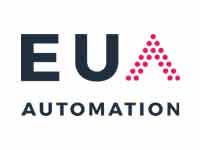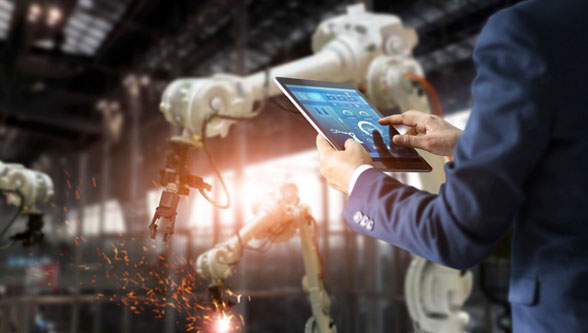Key considerations for manufacturers contemplating Industry 4.0
The prospect of investing in new technology can be daunting, particularly during times of uncertainty. Now, more than ever, manufacturers will be asking if we should believe the hype surrounding Industry 4.0? Here, John Young, APAC director at automation parts supplier EU Automation, offers a guiding hand for those contemplating the switch to smart factories.
Despite the climate of economic uncertainty, now might be a good time to invest in the future. At the very least, many manufacturers will be asking fundamental questions about how they run their operations. For some companies, these challenging times might provide additional incentives to speed up the process of modernization, while for others a more cautious and patient approach would be advised. Here are five key things to think about if you are considering upgrading to a smart factory.
Think strategically. It is important to start by asking the right questions. Many companies are aware of the potential benefits of smart factories and Industry 4.0, but far fewer have clear strategies in place to benefit from their adoption. Whatever the hype surrounding a particular technological innovation, it is always useful to ask yourself how it will benefit your enterprise. Will it allow you to make key savings in time and costs?
Show good leadership. It is easy when talking of tech to lose sight of the fact that people are still just as important as they were before, albeit perhaps in different ways. For companies embarking on the transition towards Industry 4.0, effective leadership will be a crucial ingredient. You will need to lead by example in embracing new technology. Above all, effective communication with the workforce will be paramount. You will need to think carefully about how you will communicate news of any changes and the reasons behind them.
Invest in security. It is difficult to overstate the importance of this point. An increase in connectivity will also lead to heightened vulnerability to malware and ransomware attacks. Third party access and remote access increases the risk. Legacy equipment might be especially vulnerable because it was developed without these considerations in mind. Cybersecurity strategy will have to take into consideration the entirety of the digital footprint, including personal devices like smart phones and tablets.
Find trusted suppliers. Smarter factories may incorporate technologies that cut downtime by predicting maintenance needs with smart sensors and data analytics. However, you will still need a trusted supplier of machine parts to take advantage of this. At EU Automation, we always aim to deliver more to our customers, whether it is obsolete industrial parts or the latest robotics technology.
Believe the hype. I enjoy stories about the most modern of technologies being combined with inventions that have been around for thousands of years, such as agriculture. Smart farms are a great example of this. A mushroom farm in South Korea recently mechanized many of the manual tasks in its production chain through the use of robots and automated equipment. This was coupled with smart sensors and data analytics which optimized fertilizer to soil ratios. The bottom line is that output increased by almost a third as a result of these changes.
To return to the opening question then, yes we should believe the hype surrounding Industry 4.0. Smart factories are not only the way of the future, in many places they are an increasing part of the present. However, the uptake of new technologies will not be uniform and manufacturers should have a clear strategy in place, taking into consideration some of the factors highlighted here.
EU Automation is a global supplier of industrial parts, including robotics parts. We have helped customers in 154 different countries. To find out how we can help with your upgrade or maintenance needs, contact us today by visiting our website, euautomation.com




